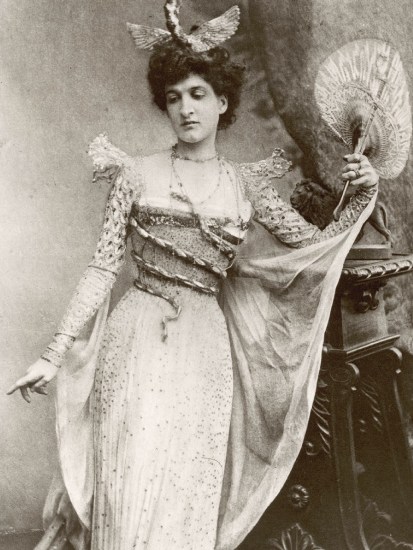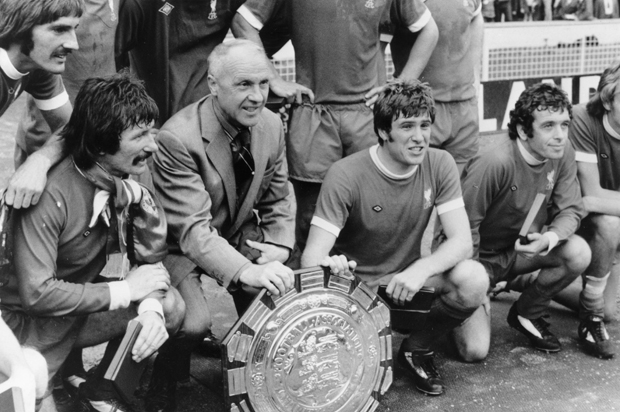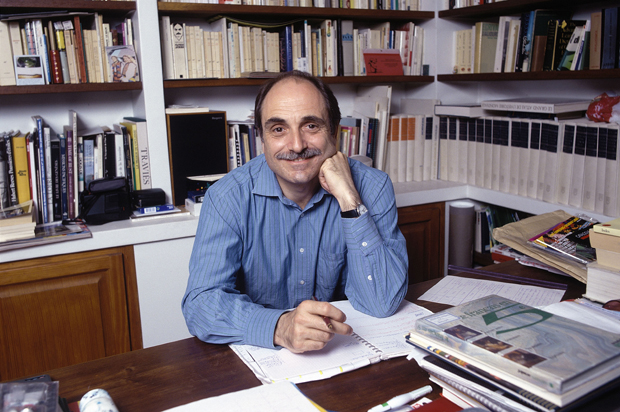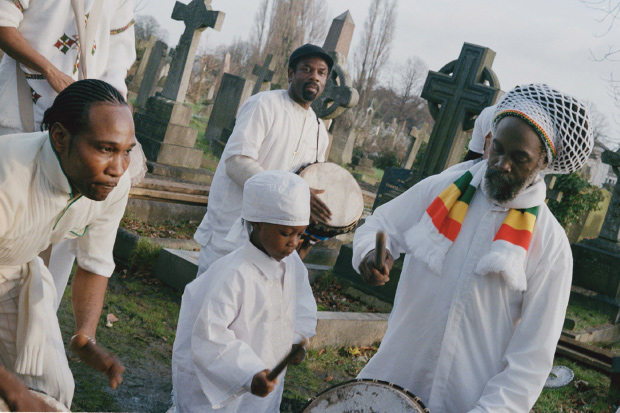You might be forgiven for thinking that there is no need for yet another book about Margot Asquith. Her War Diary was published only a few months ago: surely we have had enough about this woman, extraordinary though she was.
Anne de Courcy’s new book shows that this is not the case at all. Instead of using Margot’s voluminous diaries to illustrate the politics of the Asquith government, as most writers have done, she writes the story from Margot’s point of view. The result is a gripping read.
When the rising Liberal politician Herbert Henry Asquith married Margot Tennant in 1894 he was a 42-year-old widower and she was 30. He had begged her to marry him — ‘Upon my knees’ — and he wrote sadly to a friend that he knew that Margot would never return his passion. Margot’s decision to marry Asquith was entirely pragmatic. She didn’t fancy him at all, but she thought he had an interesting career ahead of him. At first she couldn’t bear him to touch her, but soon she fell in love with him.
Margot was a celebrity with a vivid social life, and she introduced her glamorous friends to the brainy, professional Asquiths. (Of Asquith’s first, middle-class wife Margot had crushingly remarked: ‘She lives in Hampstead and has no clothes.’) Margot was generous with her money, but Asquith’s five children didn’t welcome their new stepmother.
The most difficult of the stepchildren was Violet, the only daughter, who adored her father and bitterly resented Margot. Violet had slept in a bed in her father’s room since her mother died when she was four, and de Courcy says their relationship was ‘near incestuous’. Margot complained that in 19 years of marriage she had been alone with her husband for only three weeks. Violet was always in the way, preventing her from having Asquith to herself.
She had two children with Asquith, but three of her babies died, and in 1907 the doctors ordered an end to marital relations. Margot felt guilty, and pretended not to notice as Asquith gained a reputation as a groper.
Violet’s best friend was Venetia Stanley, a socially confident aristocrat, tall, dark and handsome. The two young women were very close indeed — de Courcy detects a ‘faint subtext of lesbianism’ in their relationship. Asquith spent much of his time with Violet and her friends, and in 1912, aged 60, he fell in love with Venetia.
The prime minister was infatuated. He and Venetia went on drives together, and he poured out a torrent of love letters revealing state secrets to her. All this took place against a background of rising suffragette violence, much of it directed against Asquith, who opposed votes for women. De Courcy builds a detailed, pointillist picture of England before and after 1914, using unpublished diaries of ordinary people.
During the war, 10 Downing Street was a turbulent cat’s cradle of seething emotions. Margot loved Asquith, and so did Violet — he was the most important man in her life by far, even after her marriage to Maurice Bonham-Carter in 1915. Asquith loved Venetia. And Venetia was loved by the politician Edwin Montagu — clever and charming but monstrously ugly. The Asquiths’ social routine was barely changed by the war. Margot entertained as much as before, giving lunch or dinner parties most days, and Asquith always played bridge after dinner. He remained clear-headed, with an amazing ability to concentrate, though he wrote to Venetia as often as three times a day. During cabinet meetings, colleagues watched with horror as a messenger would bring a letter from Venetia, which Asquith would immediately open, read and reply to at length, while matters affecting the lives of thousands of young men were discussed around him. Although it seems unlikely that Asquith and Venetia slept together, this was probably an erotic relationship.
Asquith felt barely a twinge of guilt for his unfaithfulness to his unhappy wife. Nor did Venetia think — or care — how much misery she was causing Margot. But after three years of Asquith, Venetia felt the need to escape, and her way out was to marry the Jewish Montagu. She drove a hard bargain: she refused to sleep with Montagu and she demanded the freedom to conduct affairs. In exchange, she agreed to convert to Judaism. Venetia’s defection left Asquith tired and careworn. No longer imperturbable and genial, the Prime Minister seemed a broken man, incapable of running the war.
De Courcy’s account of Margot’s Downing Street years reads like a novel — full of fresh detail, with a sensational plot which turns on the bizarre emotional dynamics of a political dynasty. Move over, Downton: this is a true story which outdoes fiction any day.
Got something to add? Join the discussion and comment below.
Get 10 issues for just $10
Subscribe to The Spectator Australia today for the next 10 magazine issues, plus full online access, for just $10.
Available from the Spectator Bookshop, £16 Tel: 08430 600033
You might disagree with half of it, but you’ll enjoy reading all of it. Try your first month for free, then just $2 a week for the remainder of your first year.














Comments
Don't miss out
Join the conversation with other Spectator Australia readers. Subscribe to leave a comment.
SUBSCRIBEAlready a subscriber? Log in